第67章
3.He also ordered that those whose bodies were afflicted with leprosy, and that had a gonorrhea, should not come into the city;nay, he removed the women, when they had their natural purgations, till the seventh day; after which he looked on them as pure, and permitted them to come in again.The law permits those also who have taken care of funerals to come in after the same manner, when this number of days is over; but if any continued longer than that number of days in a state of pollution, the law appointed the offering two lambs for a sacrifice; the one of which they are to purge by fire, and for the other, the priests take it for themselves.In the same manner do those sacrifice who have had the gonorrhea.But he that sheds his seed in his sleep, if he go down into cold water, has the same privilege with those that have lawfully accompanied with their wives.And for the lepers, he suffered them not to come into the city at all, nor to live with any others, as if they were in effect dead persons; but if any one had obtained by prayer to God, the recovery from that distemper, and had gained a healthful complexion again, such a one returned thanks to God, with several sorts of sacrifices; concerning which we will speak hereafter.
4.Whence one cannot but smile at those who say that Moses was himself afflicted with the leprosy when he fled out of Egypt, and that he became the conductor of those who on that account left that country, and led them into the land of Canaan; for had this been true, Moses would not have made these laws to his own dishonor, which indeed it was more likely he would have opposed, if others had endeavored to introduce them; and this the rather, because there are lepers in many nations, who yet are in honor, and not only free from reproach and avoidance, but who have been great captains of armies, and been intrusted with high offices in the commonwealth, and have had the privilege of entering into holy places and temples; so that nothing hindered, but if either Moses himself, or the multitude that was with him, had been liable to such a misfortune in the color of his skin, he might have made laws about them for their credit and advantage, and have laid no manner of difficulty upon them.Accordingly, it is a plain case, that it is out of violent prejudice only that they report these things about us.But Moses was pure from any such distemper, and lived with countrymen who were pure of it also, and thence made the laws which concerned others that had the distemper.He did this for the honor of God.But as to these matters, let every one consider them after what manner he pleases.
5.As to the women, when they have born a child, Moses forbade them to come into the temple, or touch the sacrifices, before forty days were over, supposing it to be a boy; but if she hath born a girl, the law is that she cannot be admitted before twice that number of days be over.And when after the before-mentioned time appointed for them, they perform their sacrifices, the priests distribute them before God.
6.But if any one suspect that his wife has been guilty of adultery, he was to bring a tenth deal of barley flour; they then cast one handful to God and gave the rest of it to the priests for food.One of the priests set the woman at the gates that are turned towards the temple, and took the veil from her head, and wrote the name of God on parchment, and enjoined her to swear that she had not at all injured her husband; and to wish that, if she had violated her chastity, her right thigh might be put out of joint; that her belly might swell; and that she might die thus: but that if her husband, by the violence of his affection, and of the jealousy which arose from it, had been rashly moved to this suspicion, that she might bear a male child in the tenth month.Now when these oaths were over, the priest wiped the name of God out of the parchment, and wrung the water into a vial.He also took some dust out of the temple, if any happened to be there, and put a little of it into the vial, and gave it her to drink; whereupon the woman, if she were unjustly accused, conceived with child, and brought it to perfection in her womb:
but if she had broken her faith of wedlock to her husband, and had sworn falsely before God, she died in a reproachful manner;her thigh fell off from her, and her belly swelled with a dropsy.
And these are the ceremonies about sacrifices, and about the purifications thereto belonging, which Moses provided for his countrymen.He also prescribed the following laws to them: -CHAPTER 12.
Several Laws.
1.As for adultery, Moses forbade it entirely, as esteeming it a happy thing that men should be wise in the affairs of wedlock;and that it was profitable both to cities and families that children should be known to be genuine.He also abhorred men's lying with their mothers, as one of the greatest crimes; and the like for lying with the father's wife, and with aunts, and sisters, and sons' wives, as all instances of abominable wickedness.He also forbade a man to lie with his wife when she was defiled by her natural purgation: and not to come near brute beasts; nor to approve of the lying with a male, which was to hunt after unlawful pleasures on account of beauty.To those who were guilty of such insolent behavior, he ordained death for their punishment.